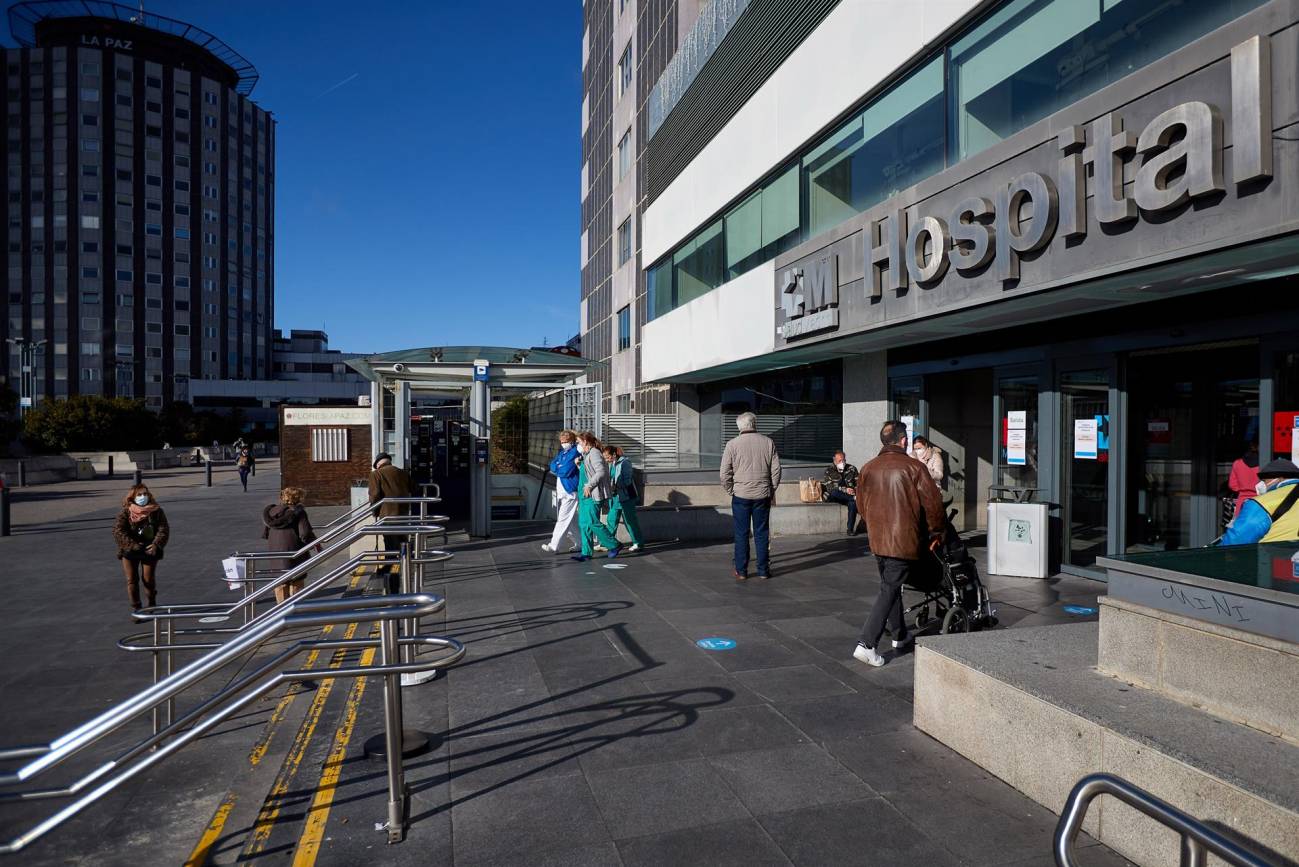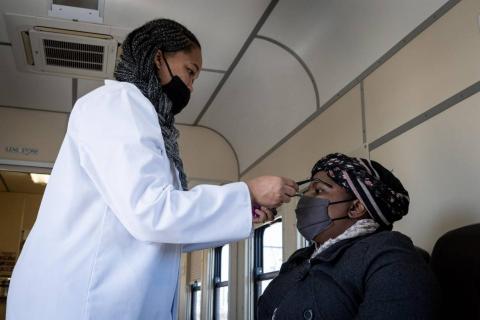Rapid reaction to the first case of the Omicron variant detected in Spain
The discovery of the Omicron variant has led to the cancellation of flights to several African countries, while many countries are beginning to detect cases among travellers from countries such as South Africa, but also Nigeria and Egypt. Spain has just announced the first detected case of Omicron, which corresponds to a traveller who had visited South Africa. What measures should be taken to stop the spread of this variant? Is it even possible?

Access to La Paz hospital in Madrid / EFE | Miguel Osés.
Ignacio Rosell - primer caso ómicron España EN
Ignacio Rosell
Specialist in preventive medicine and public health at the University of Valladolid
The omicron variant was already present in nearby countries, including our neighbouring Portugal, and therefore it cannot be ruled out that it could also be circulating in Spain.
In any case, up to now there is no clear consolidated certainty about its degree of transmissibility or severity, and there is some contradictory information.
The best measure to stop this variant, and any others that may arise later on, is to continue to make progress in global vaccination, because this is a NAPdemic.
Cancellation of travel, given that the variant is already circulating in countries where the same restrictions have not been put in place, can only serve to perhaps halt its rate of introduction to some extent, but not so much to prevent it.
Pedro Gullón - primer caso ómicron España EN
Pedro Gullón
Social epidemiologist and doctor specialising in preventive medicine and public health at the University of Alcalá
The best way to control the transmission of omicron, with the information we have, is to control community transmission of COVID-19 within countries.
We do not know to what extent omicron is already widespread in neighbouring countries (the first case has already been confirmed in Spain), nor do we know what its transmissibility characteristics are. Therefore, the flight ban is likely to be of very limited effectiveness in preventing the entry of Omicron.
The ECDC published modelling where it analysed that limiting flights could delay the impact of the new variant by two weeks, but not prevent it. Therefore, right now, in order to control ómicron, we can establish four priorities: (1) study the characteristics of omicron (transmissibility, lethality, potential immune escape), which will take three or four weeks; (2) sequencing to determine the extent; (3) reduce community transmission of COVID-19, whether or not by omicron; (4) extend global vaccination to reduce transmission in other territories.
Óscar Zurriaga - primer caso ómicron España EN
Óscar Zurriaga
Professor of Preventive Medicine and Public Health at the University of Valencia and outgoing president of the Spanish Society of Epidemiology (SEE).
It is really very difficult to stop the advance of new variants and their introduction into our territory. We have already seen, on more than one occasion, how not much time elapses between the detection of a variant somewhere in the world and its introduction into our territory. The mobility of the population is still very high today, despite the pandemic, and it circulates by many different routes.
Preventing or cancelling direct flights with a given country, unless it is done unanimously and uniformly by the rest of the countries, and all at the same time, does not seem to be the solution. And even meeting this condition does not ensure the effectiveness of this measure.
The best option is probably to maintain and reinforce surveillance of the appearance of the variant and its distribution. This will help to increase our knowledge, which should allow us to know the real extent of this new variant, not only in terms of transmissibility, but also in terms of severity and actual vaccine escape. We will then be able to act with the most appropriate measures and those that are really necessary.
Of course, the emergence of this variant on the African continent, where vaccination coverage is so low, only reinforces the argument that we need to work more decisively to increase vaccination in all countries. This requires not only providing them with more doses, but also with the means (logistical, human and financial) to administer them.

